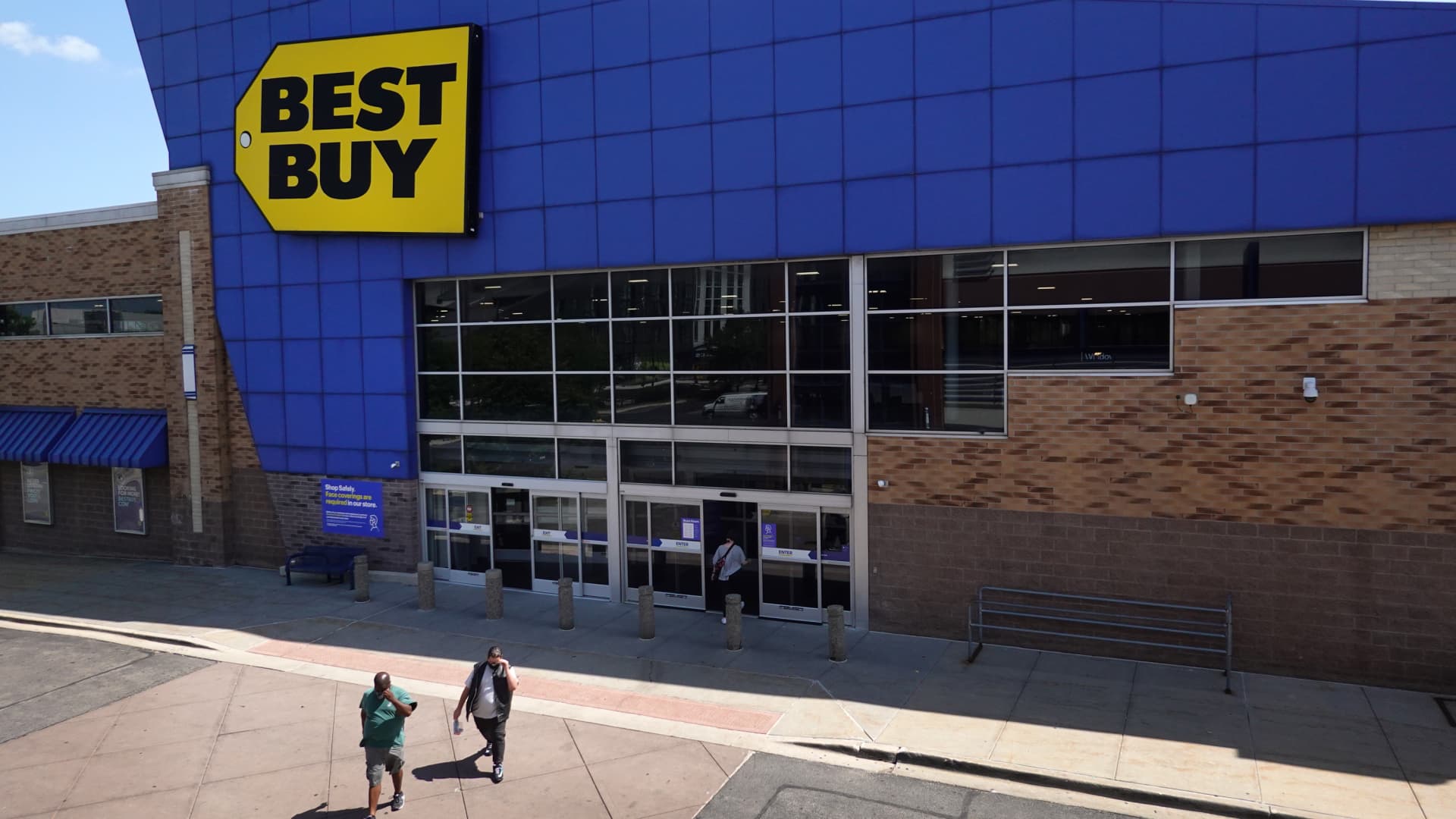Best Buy on Thursday reported holiday-quarter earnings and revenue that topped Wall Street’s expectations, as waning demand for consumer electronics proved better than feared.
Still, shares were down about 4% in early trading as the retailer warned of declining sales in the coming year.
For the coming fiscal year, the consumer electronics retailer said it expects revenue between $43.8 billion and $45.2 billion, a decline from its most recent fiscal year, and a same-store sales decline of between 3% and 6%. The company is expecting to feel the majority of that pressure during first quarter and then level out in the second half of the fiscal year.
“We are preparing for another down year for the [consumer electronics] industry,” said CEO Corie Barry on a call with analysts.
Here’s how the company did for the quarter ended Jan. 28 compared with what Wall Street was anticipating, based on a survey of analysts by Refinitiv:
- Earnings per share: $2.61 vs. $2.11 expected
- Revenue: $14.74 billion vs. $14.72 billion expected
Best Buy was a big beneficiary of sales trends during the Covid pandemic, as consumers bought computer monitors to work remotely, home theaters to pass the time and kitchen appliances as they cooked more. Its quarterly sales were down about 3% from the same period before the pandemic when it reported $15.2 billion in revenue.
Its pandemic-era momentum has teed up challenging comparisons for the consumer electronics retailer, particularly as shoppers feel strained by bigger grocery bills and other higher expenses fueled by inflation. Best Buy also sells a lot of big-ticket items, such as laptops and smartphones, purchases that a customer may not make as frequently or ones that they may postpone if stretched by other spending priorities.
Same-store sales decreased by 9.3% during the fourth quarter, slightly higher than analysts’ expectations of 9.2%, according to StreetAccount. For the full year, same-store sales were down 9.9%, in line with guidance the retailer issued in November that same-store sales would decline about 10%. The key metric, also called comparable sales, tracks sales online and at stores open at least 14 months.
Best Buy had joined other retailers in cutting its outlook this summer. It also cut an undisclosed number of jobs across the country this summer.
In the fiscal fourth quarter, Best Buy’s net income fell by 21% to $495 million, or $2.23 per share, from $626 million, or $2.62 per share, a year earlier.
Best Buy is making a play to revive its storefront portfolio to bring the company’s margins back to pre-pandemic levels and “stay relevant in an increasingly digital age,” said Barry in the Thursday conference call. The revamp will cost the company $200 million in capital expenditures, about a quarter of the company’s projected $850 million capital expenditures for the 2024 fiscal year.
As of Wednesday’s close, Best Buy’s shares have risen nearly 3% so far this year, in line with the performance of the S&P 500 during the same period. Its shares closed at $82.54 on Wednesday, bringing its market value to $18.26 billion.
